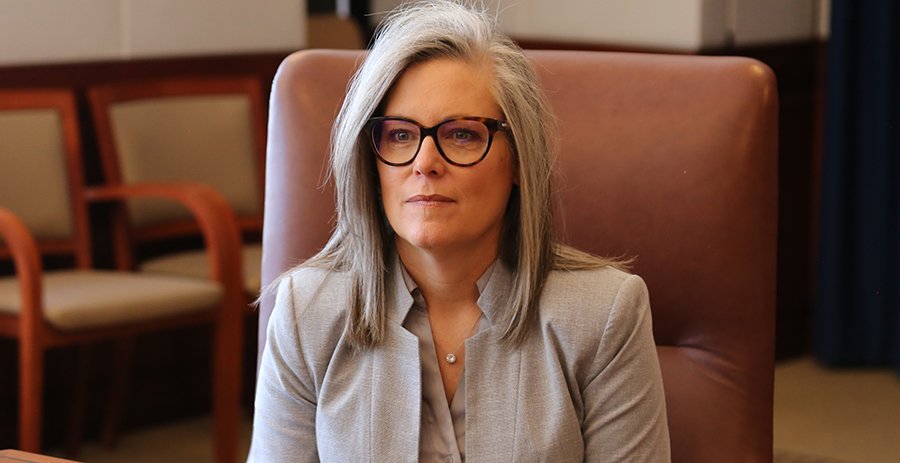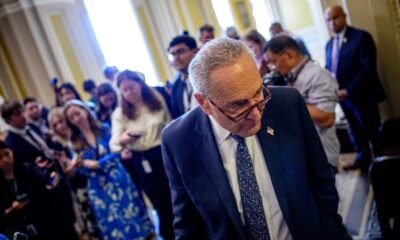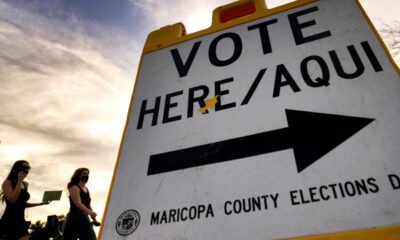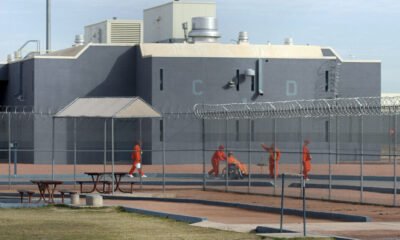2024 Election News
Hobbs’ Attorney Fires Back at GOP Lawsuit

An attorney representing Governor Katie Hobbs has filed a response to the Arizona Republican Party’s legal challenge led by Gina Swoboda. The lawsuit aims to annul executive orders issued by the governor aimed at facilitating voter registration and access.
In a filing with the Arizona Supreme Court, attorney Andy Gaona argued that Swoboda’s claims lack a legitimate basis and serve only to sow distrust in election processes. Swoboda alleges that these measures undermine public confidence in election integrity, a point Gaona contested vigorously.
“These allegations make no sense,” Gaona asserted. He emphasized that even if Swoboda and her associates felt their confidence was diminished—a claim he disputes—such feelings would be objectively unreasonable.
One of the contested orders permits state agencies to serve as polling locations and ballot drop-off sites. Gaona clarified that individual counties ultimately decide where to set up these points and that the governor’s role does not directly influence these choices.
“Counties determining which facilities to use has nothing to do with ‘election integrity’ as defined by Swoboda,” he stated. He further noted that making voter registration forms available is standard practice for various organizations, including the Arizona Republican Party.
Gaona also raised questions about the timing of the lawsuit, which came just two and a half months before the general election despite the orders being signed last November.
“Petitioners should have filed in superior court months ago, but waited until just before the ballot printing deadline,” he remarked, suggesting that the intent was to cast unnecessary doubt on Arizona’s electoral process.
He labeled the claims as “frivolous,” stating they rely on a distorted interpretation of the executive orders and relevant laws. Moreover, Gaona recommended that Swoboda and her co-plaintiffs should bear the governor’s legal costs due to the meritless nature of their case.
The executive order permits state buildings to function as voting sites indefinitely. Opposing counsel, Andrew Gould, criticized the order for failing to adequately address key logistical details, such as the secure storage of completed ballots.
Gould also challenged the legality of the governor designating state agencies for voting and ballot drop-off purposes. He argued that another executive order directing agencies to provide links to voter registration websites exceeded Hobbs’s constitutional authority.
Gaona dismissed both arguments put forth by Gould, asserting that Hobbs’s orders do not encroach upon county election officials’ responsibilities. He highlighted that the coordination role outlined in the orders neither usurps authority nor mandates counties to use state facilities.
Regarding the availability of voter registration forms, Gaona pointed out that no law prohibits state agencies from distributing these materials to the public. Quoting state law, he affirmed, “county recorders must distribute registration forms throughout the county at various public locations.”
The governor’s attorney criticized Swoboda’s insights, suggesting they reveal a reluctance to increase voter accessibility.
Furthermore, Gaona asserted that Swoboda and her associates lack standing to pursue the case. He explained the legal requirement for petitioners to demonstrate potential “irreparable harm,” which none of the plaintiffs managed to articulate.
Gaona regarded the lawsuit’s claims as fundamentally flawed, arguing that the removal of voter registration information would negatively impact public policy and equity.
As of now, the Supreme Court has yet to decide whether to proceed with reviewing Swoboda’s lawsuit.

















